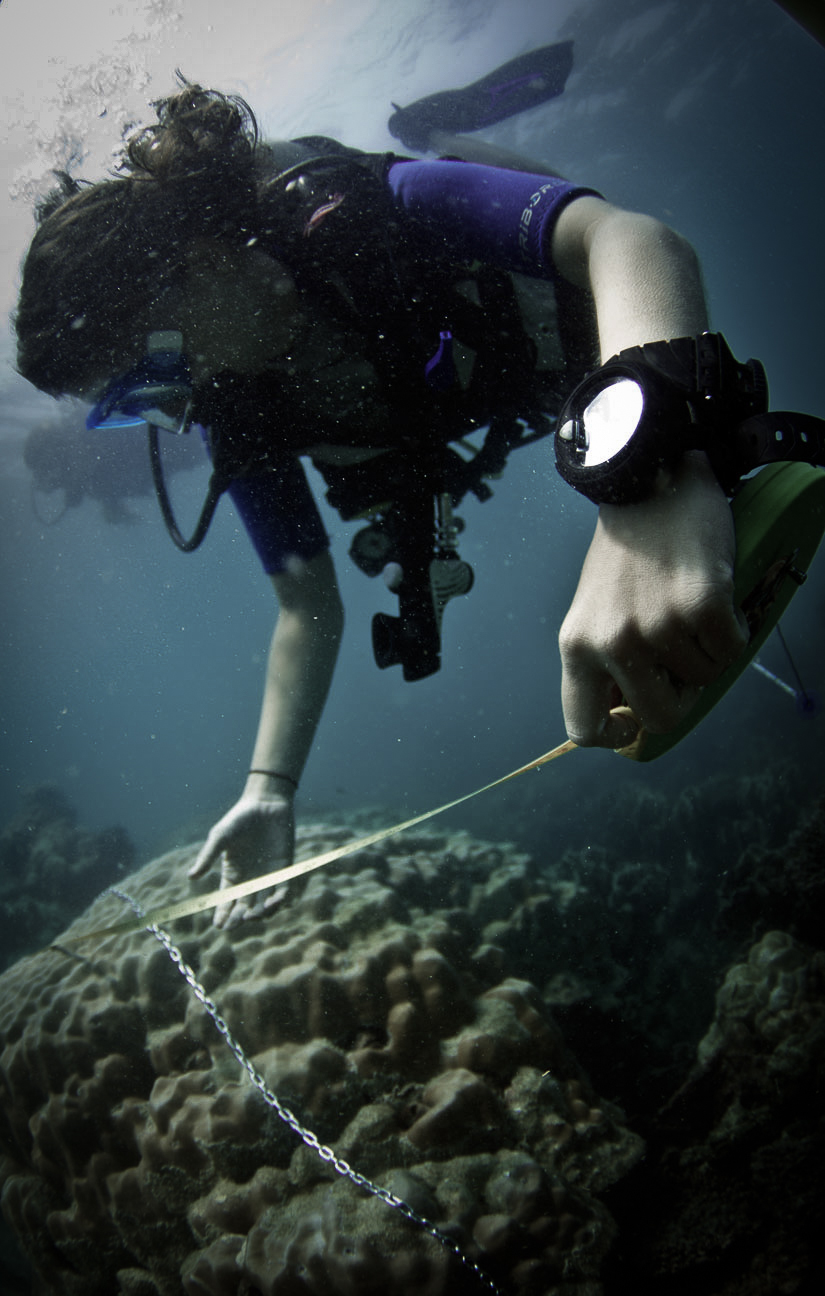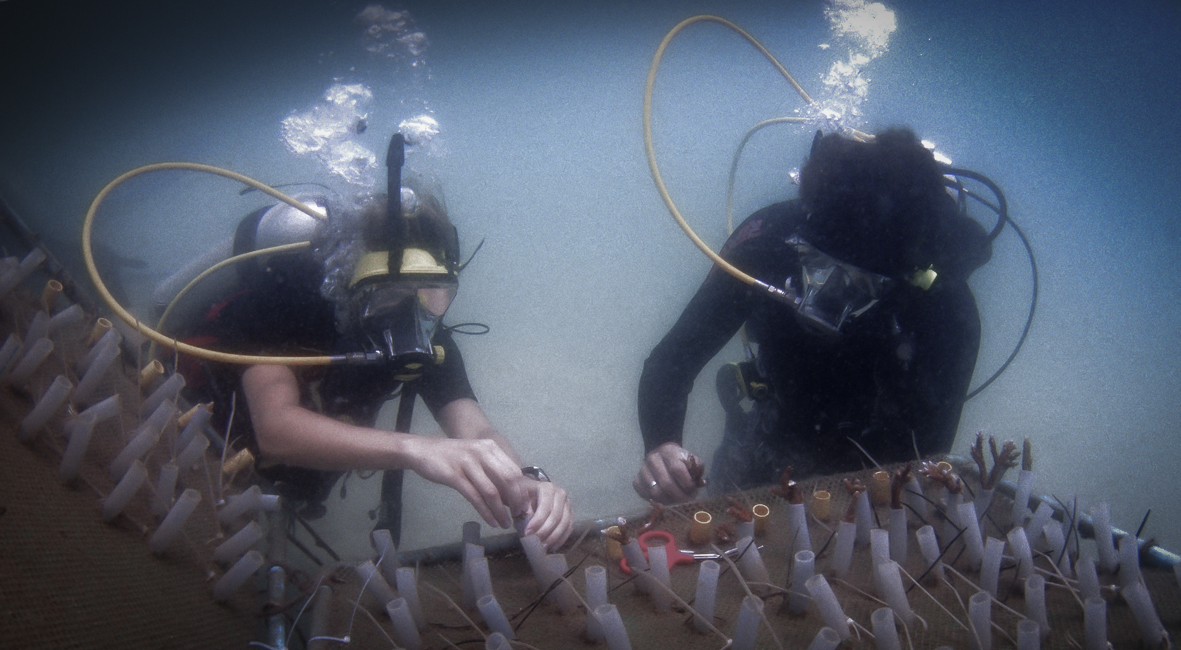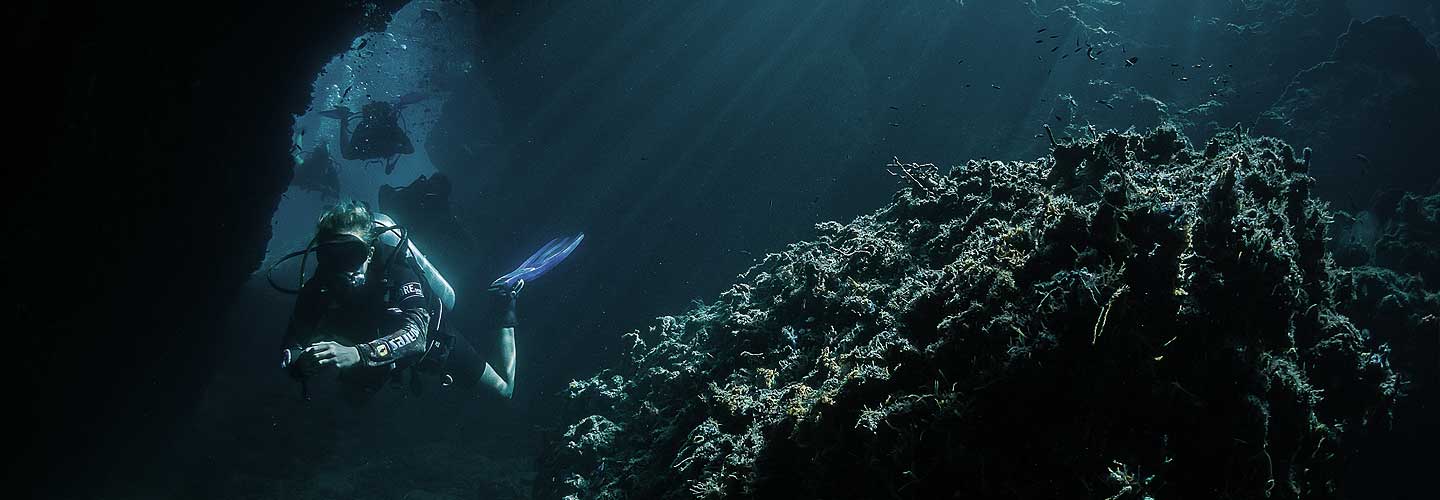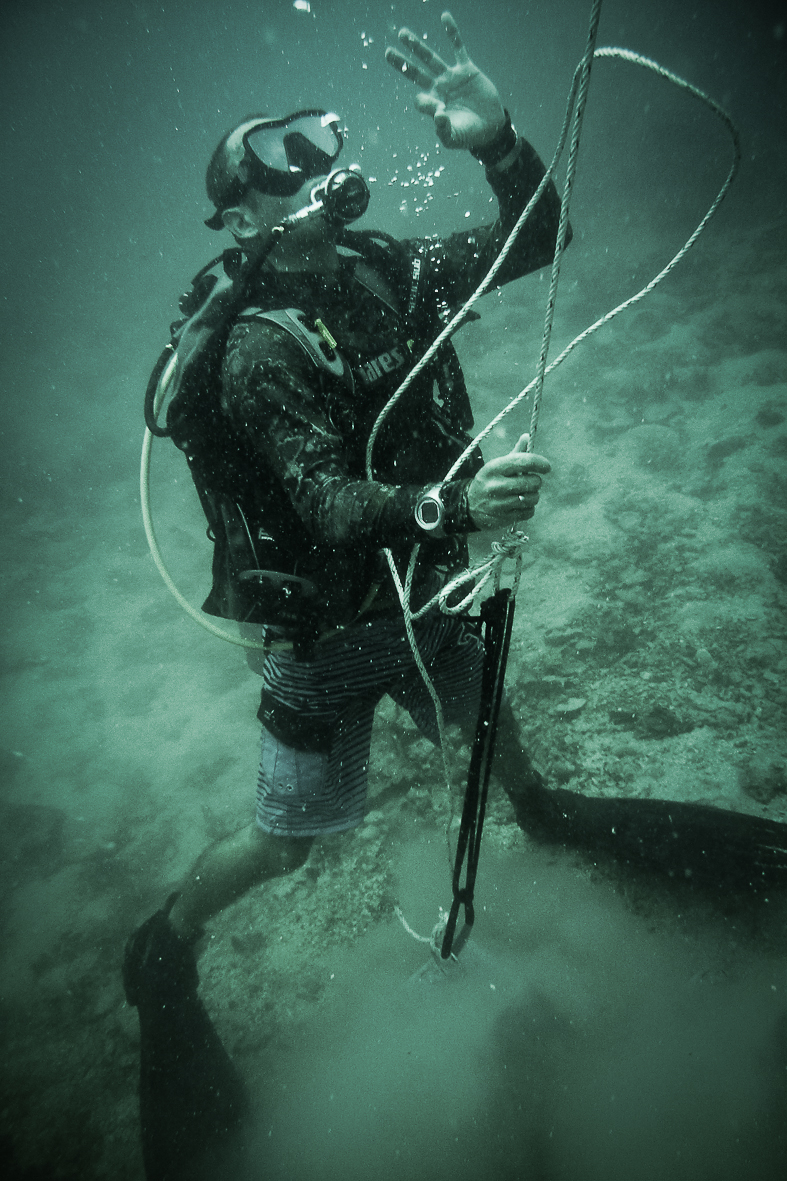On a glance
Aim
This course can be understood as a shortened and intensive version of the European Scientific Diver program, adapted for tropical, shallow environments. After completing the program, participants should be able to plan and execute any mission in similar environments, in a safe and efficient manner
Key points
- Duration: 14 days
- Dives: app. 24
- Topics: 14
- Prerequisite: Rescue Diver
- Minimum Age: 18
- University Affiliation Required: Yes
- Fitness Level Required: Medium
- Contains Academic and Practical Modules
- Final Exam: Yes (practical)
- Includes: Accommodation, Dive Equipment Rental
- Cost: 31,000 THB



Topics
Practical:
- Self Reliance
- Research diving buoyancy
- Working underwater
- Redundant Gas Systems
- Integrated Fullface masks
- Underwater communication, (radio and signals)
- Reef monitoring, mapping and ID
- Knots, Liftbags, Airlift
- Equipment and sample handling
- Emergency/ Rescue drills
Academic
- Risk management
- Gas management
- Mission Planning
- Decompression Theory
- Coral Reef Ecology
Course Description
“It’s easier to teach scientist to dive, than to teach a diver science”
Answering your research questions under water often requires complex logistics and problem solving abilities.
Sometimes they do not, but the nature of the environment, and the inherent risks, make training mandatory.
We offer you a safe and relaxed environment to develop fundamental research dive skills, modeled and adapted after the European Scientific Diver outline.
What you will learn
Primarily, you will learn how to transport your ideas into the aquatic realm, anticipate problems, and solve problems when they arise. Additionally, we will introduce you to current research methods, and tools.
And you will learn how to work underwater while reverse frog-kicking yourself out of a dense Acropora field. With a bit of luck, you’ll even know what Acropora is.
Method
We rarely have typical days, but let’s try:
9:00 General Briefing about current projects
9:30 Dive Briefing
10:00 Diving
13:00 Lunch
14:00 Debriefing
14:30 Talks, Lectures, Workshops or Data crunching
16:00 You’re a grown-up. Do what you want (please read a book)

